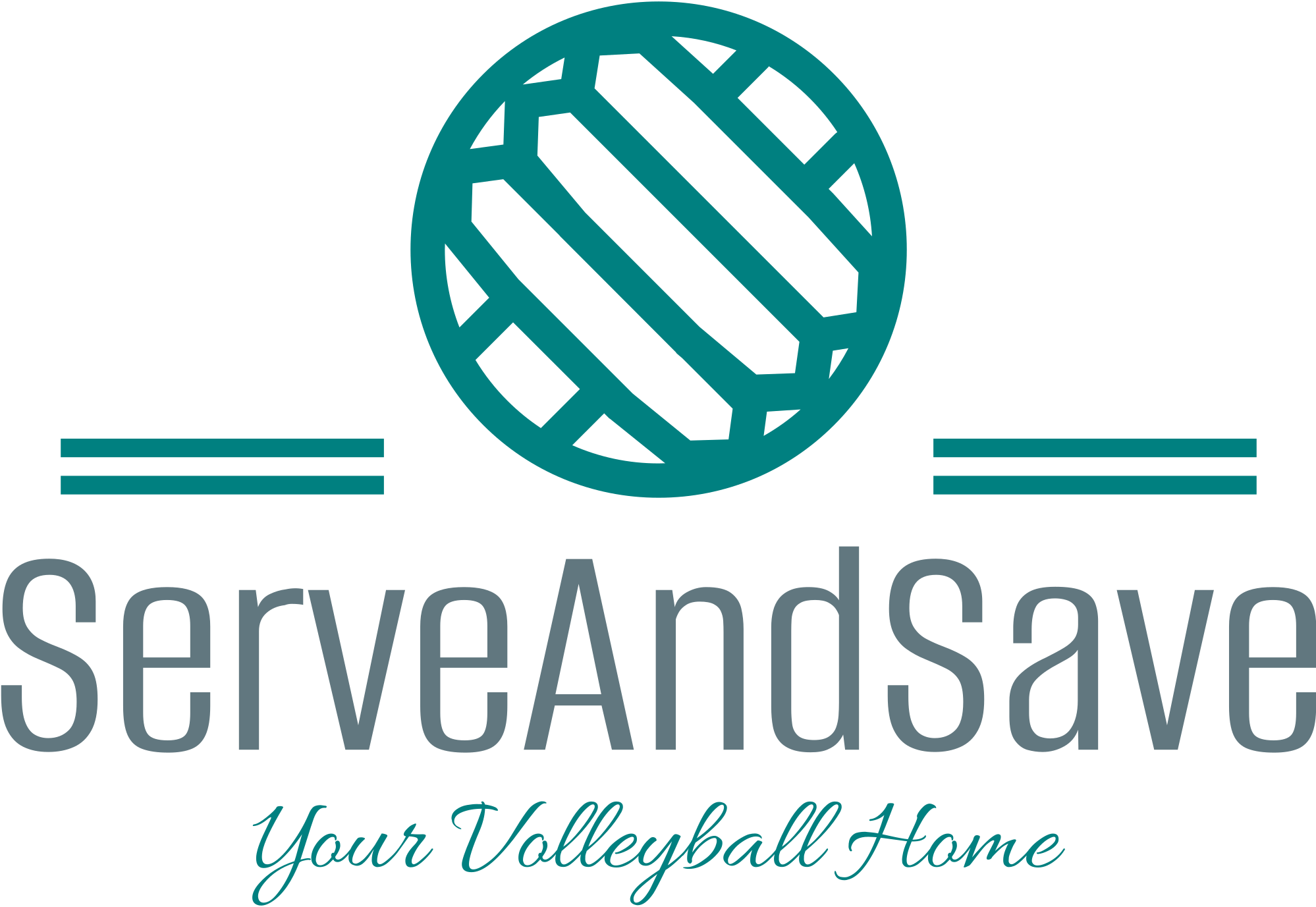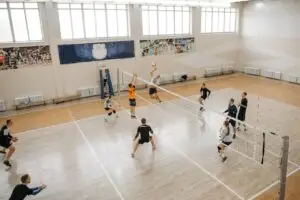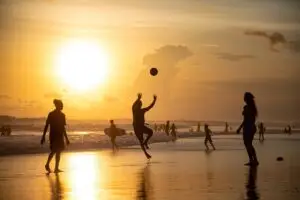The role of the outside hitter in volleyball is essential for a team’s success. They are key offensive players responsible for scoring points by attacking the ball from the front row.
Outside hitters need to balance strong attacking skills with solid defense, making them versatile on the court.
Players in this position also serve as an anchor for teamwork. They work closely with setters to execute plays and must have excellent communication skills.
Their ability to adapt and read the game can change the outcome of a match, showing just how important they are to a volleyball team.
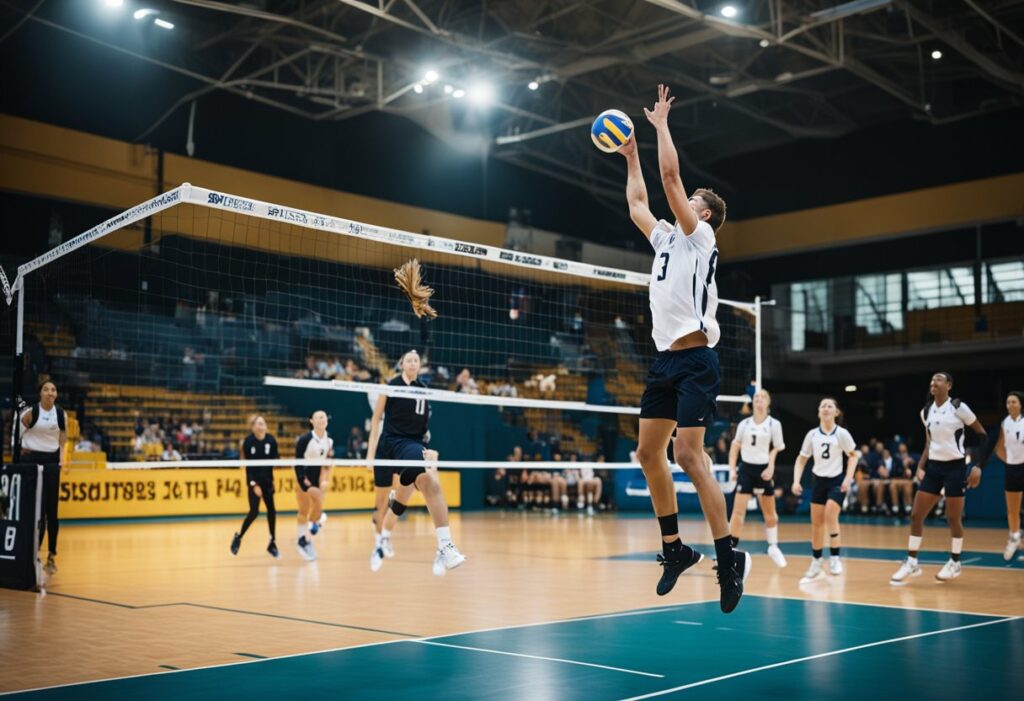
For anyone interested in improving their game or understanding volleyball better, learning about the outside hitter’s role is crucial. Developing the required skills can lead to becoming a more effective player and teammate.
Key Takeaways
- Outside hitters are vital for scoring and defense in volleyball.
- Key skills include communication, attacking, and game awareness.
- Players can improve by focusing on technique and teamwork.
What is an Outside Hitter in Volleyball
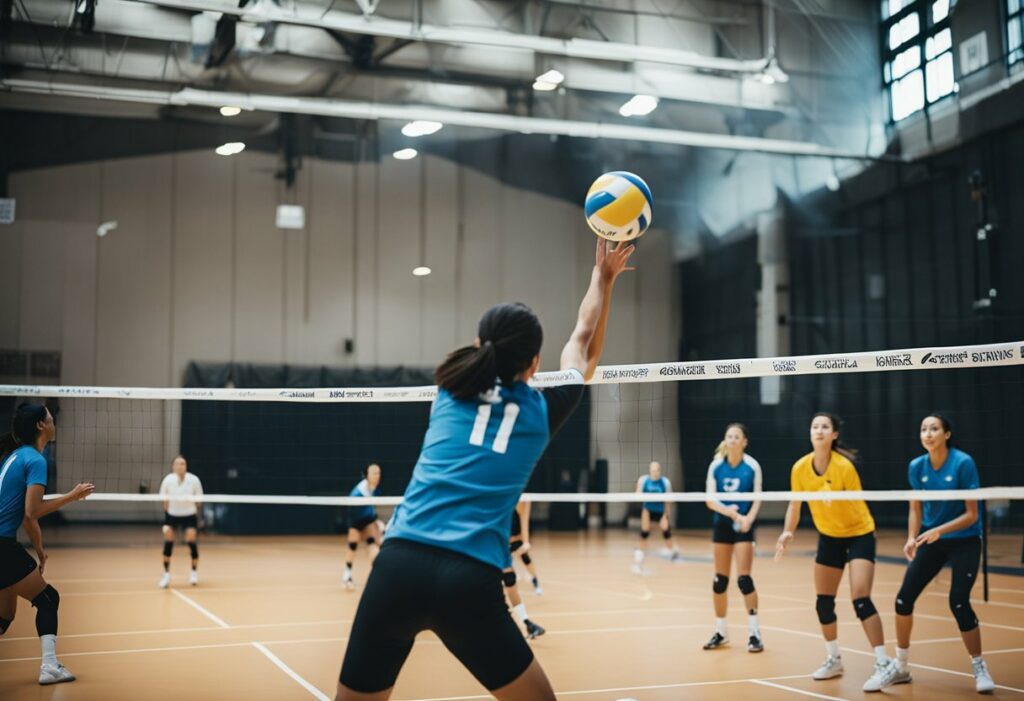
An outside hitter is a key player on a volleyball team. They often score points by hitting the ball over the net. This position is also known as a left-side hitter.
Outside hitters play in the front row and the back row. In the front, they attack the ball. In the back, they usually play defense and serve.
Key Skills of an Outside Hitter:
- Hitting: They need to be powerful and accurate when attacking the ball.
- Passing: Good passing helps the team set up plays.
- Defense: They should have strong skills to dig and receive serves.
The outside hitter needs to be versatile. They must adapt to different situations during the game. They often take on multiple roles, such as serving and blocking.
Communication is also important. They work closely with setters to plan attacks. A strong connection with teammates can lead to more successful plays.
What Does The Outside Hitter Do in Volleyball
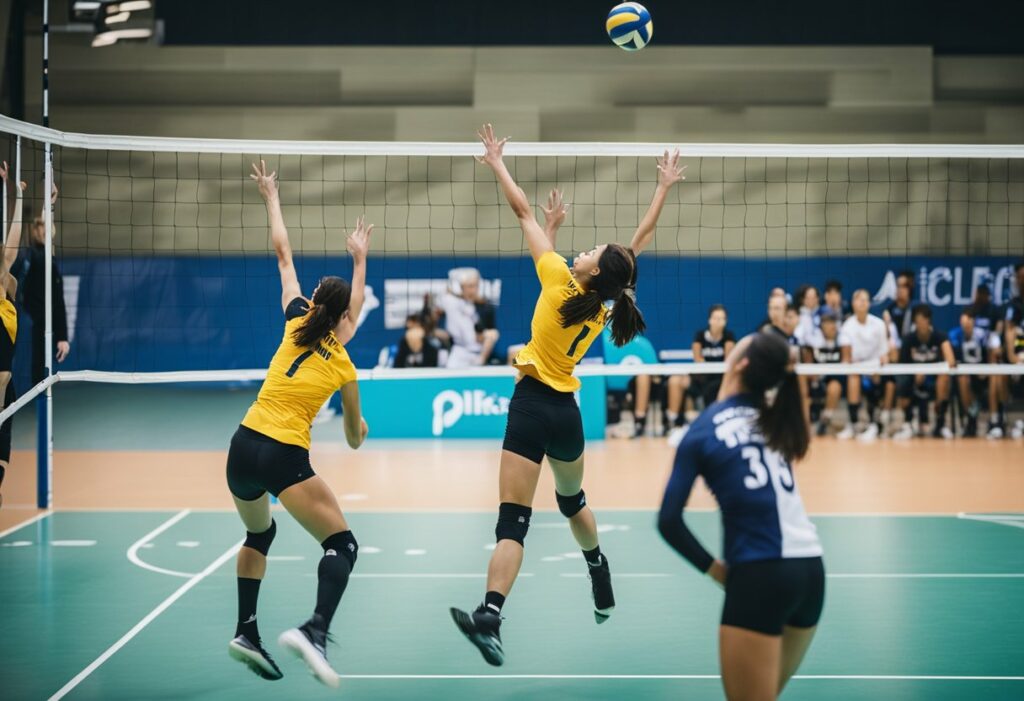
The outside hitter plays a key role in volleyball. This player is often the main attacker on the team. They hit the ball from the left side of the court and try to score points.
Main Responsibilities:
- Attacking: The outside hitter spikes the ball to score points. They need to be strong and quick to get good results.
- Passing: They help receive serves and passes. Good passing skills help set up plays.
- Defense: Outside hitters also block and dig (save) balls. They work to stop the other team from scoring.
Key Skills:
- Jumping Ability: A powerful jump helps them hit the ball harder and higher.
- Timing: Being able to time their jumps with the set is important.
- Versatility: They must be able to play both in the front row and back row.
In Matches:
Outside hitters often rotate in and out with other players. They should stay aware of their surroundings and communicate with teammates. Teamwork is essential for success.
Required Skills and Techniques For an Outside Hitter
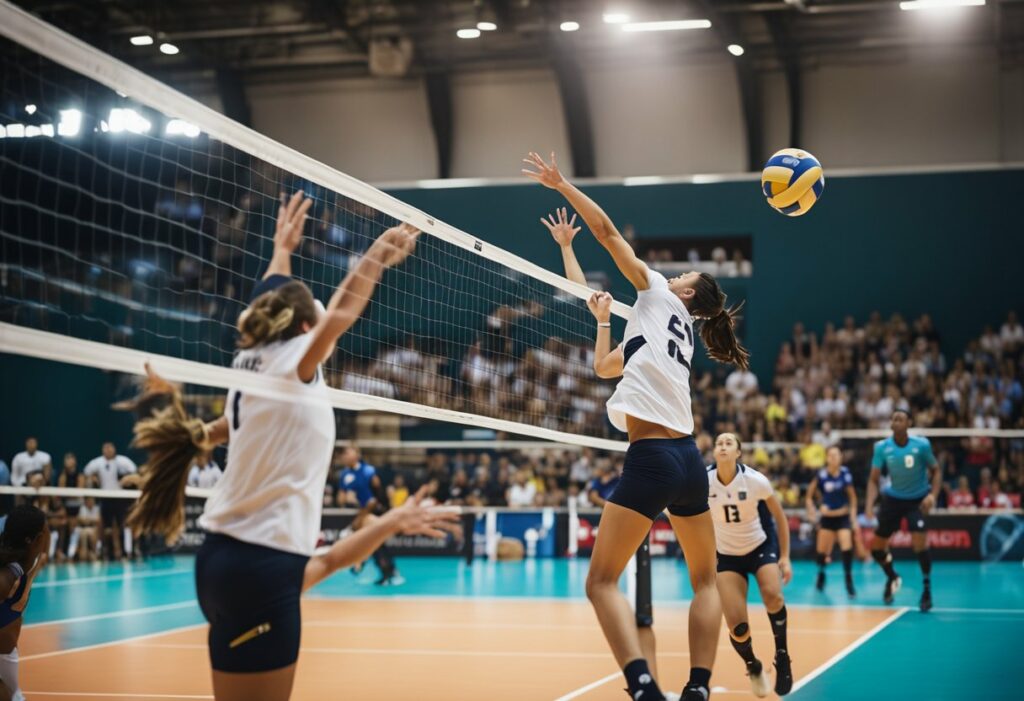
An outside hitter has to master several key skills. Here are the most important ones:
- Strong Hitting Ability: They need to spike the ball with power and precision. This requires good timing and technique.
- Passing Skills: A great outside hitter must handle serve receives well. They should be able to pass accurately to the setter.
- Defensive Skills: They should also play solid defense. This includes being able to dig hard hits from opponents.
- Court Awareness: Understanding where to be and when is crucial. They must read the game and anticipate plays.
- Communication: Talking with teammates keeps everyone on the same page. Good communication helps during plays and sets.
In terms of techniques, outside hitters often focus on:
- Approach: Taking the right steps before jumping to hit the ball.
- Arm Swing: Using an effective swing to generate power.
- Footwork: Moving quickly to get in position for a good hit.
Outside hitters also need to be mentally tough. They may face pressure situations. Staying calm and focused can make a big difference.
How to Become a Better Outside Hitter
To become a better outside hitter, practice is key. Here are some effective tips:
- Work on Passing: Good passing helps set up great attacks. Focus on your footwork and hand placement.
- Improve Timing: Hitting is all about timing. Work with setters to understand when to jump for the best spike.
- Strength Training: Building upper body strength helps with powerful hits. Include exercises like push-ups and shoulder presses in your routine.
- Watch Footwork: Good footwork allows for better positioning. Practice moving quickly and getting into the right spot for every play.
- Stay Alert: Anticipate where the ball will be. Read the game and be ready to adjust your position.
Skills to Focus On:
| Skill | Practice Ideas |
| Hitting Technique | Work on different types of hits |
| Defense | Practice digging and covering |
| Communication | Call for the ball during drills |
| Court Awareness | Play in different game situations |
Playing with a team and in various settings can help. This builds confidence and sharpens skills.
Watching videos of professional players can give ideas for improvements. Notice their techniques and try to apply them.
Lastly, always ask for feedback from coaches and teammates. They can provide tips on areas for growth.
Rules and Regulations Specific to the Position
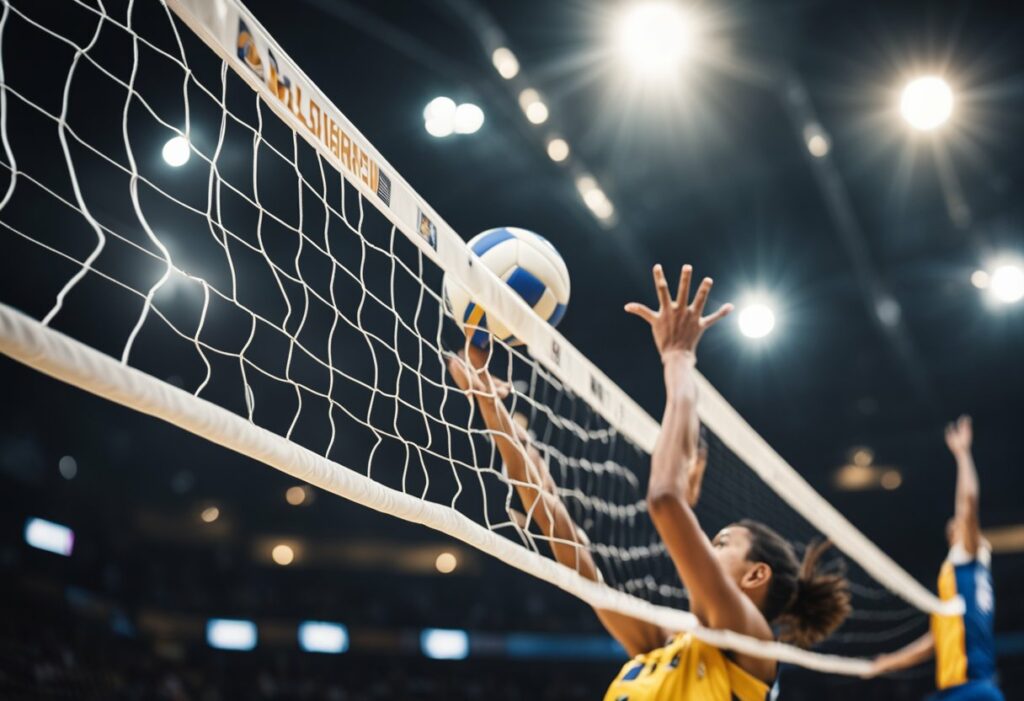
Outside hitters play a key role in volleyball, and there are specific rules they need to follow. Here’s a quick look at some important points:
- Rotation:
- The outside hitter must rotate to the front row for attacks.
- They should return to the back row after the play.
- Attack Limitations:
- They can hit the ball from anywhere on their side, but must be cautious about the net.
- No hitting from the back row in certain situations, especially during the serve.
- Blocking:
- Outside hitters can block at the net.
- They must have both feet behind the attack line when blocking.
- Hits:
- Each team can hit the ball a maximum of three times.
- The outside hitter is often responsible for the first or second hit.
- Positioning:
- They need to be aware of where they stand in relation to other players.
- Standing too close or too far from the net can affect game play.
- Substitutions:
- Coaches can substitute outside hitters to manage player fatigue.
- Substitutions must follow official rules to avoid penalties.
